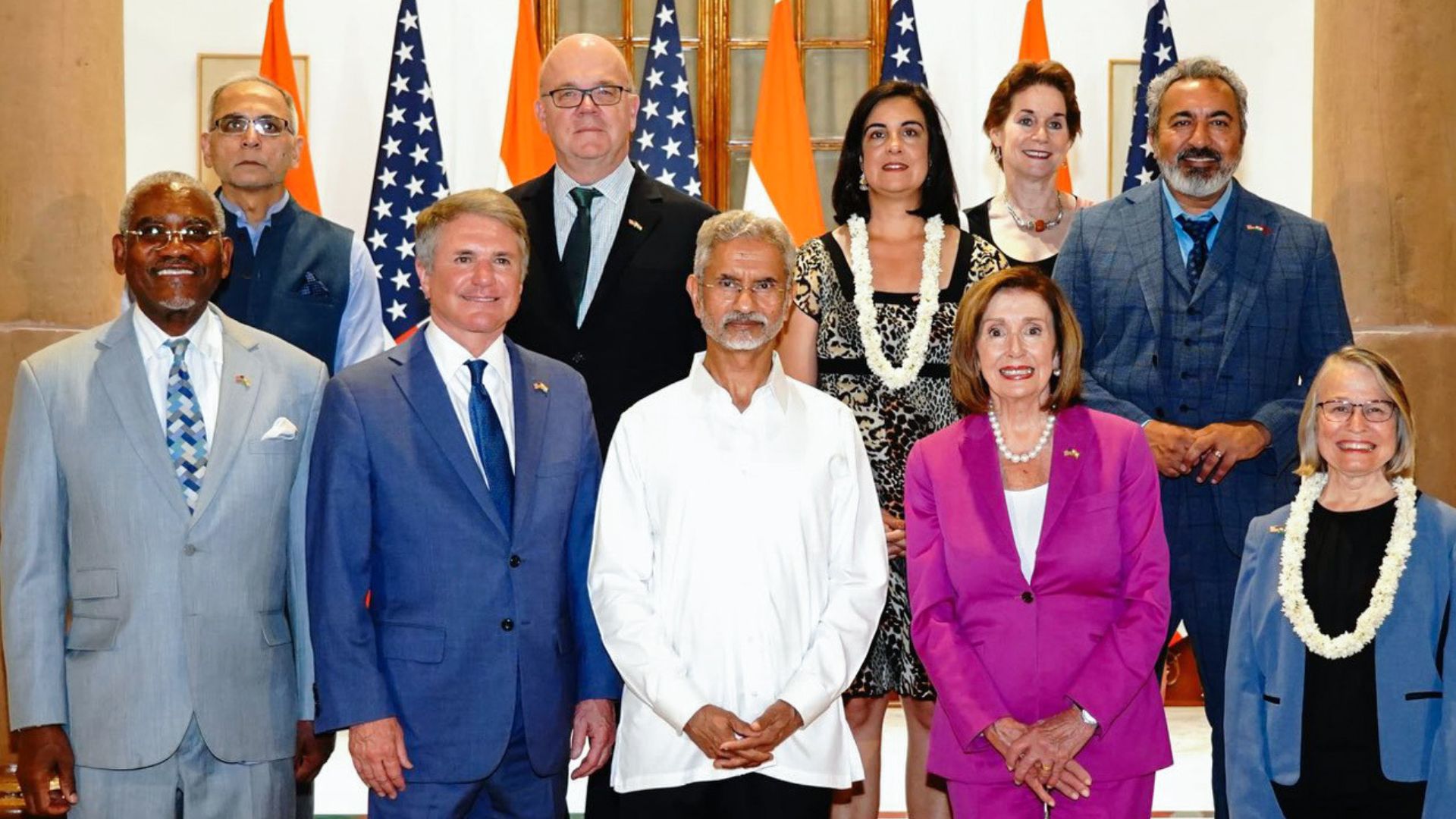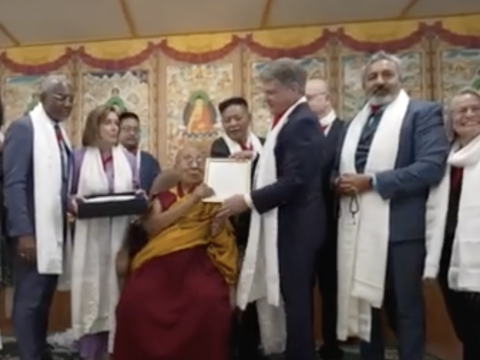NEW DELHI (Diya TV) —
A bipartisan US Congressional delegation met with India’s External Affairs Minister S. Jaishankar and Foreign Secretary Vinay Mohan Kwatra. The meeting was part of a broader visit aimed at enhancing India-US relations and supporting Tibetan autonomy.
The delegation, led by House Foreign Affairs Committee Chairman Michael McCaul, arrived in Dharamsala, Himachal Pradesh first. This group included former US House Speaker Nancy Pelosi, Mariannette Miller, Gregory Meeks, Nicole Malliotakis, Jim McGovern, and Ami Bera. One of the highlights of their trip was an audience with Tibetan spiritual leader the Dalai Lama.
During their meeting with the Dalai Lama, Representative McCaul presented him with a framed copy of ‘The Resolve Tibet Act.’ This bipartisan bill, recently passed by the US Congress, aims to bolster US support for Tibet. Last week, the US Congress approved the bill, urging Beijing to re-engage with the Dalai Lama and other Tibetan leaders to resolve the ongoing disputes peacefully.
Before meeting the Dalai Lama, the delegation attended a public felicitation program at the main Tibetan temple. The event, held in the courtyard of the Tsuglagkhang Complex in Dharamshala, featured performances by children showcasing Tibetan culture. At the end of the meeting, the Dalai Lama gifted Pelosi a Buddha Statue, as reported by his office.
The US delegation met with Indian Prime Minister Narendra Modi following their visit to Dharamsala. During the meeting, they congratulated Modi on his third consecutive term during India’s recent general elections.
Chairman McCaul and his delegation emphasized the importance of India-US relations, describing them as the “most consequential one.” In addition to McCaul, the delegation included Nancy Pelosi, Mariannette Miller, Gregory Meeks, Nicole Malliotakis, Jim McGovern, and Ami Bera. They expressed support for enhancing the Comprehensive Global Strategic Partnership between India and the US, focusing on trade, emerging technology, defense, and people-to-people exchanges.
The visit to Dharamsala sparked a stern response from China, urging the US to recognize the “anti-China and separatist nature of the Dalai clique” and to avoid any form of contact with it. The US has long supported the rights of the Tibetan people to practice their religion and culture and has accused China of human rights violations in the Himalayan region bordering India.
The recently passed Resolve Tibet Act aims to push Beijing to resume talks with Tibetan leaders and address their aspirations related to historical, cultural, religious, and linguistic identity. This bill has heightened tensions with China amid ongoing efforts to improve bilateral relations between Beijing and Washington.
President Biden is expected to sign the Resolve Tibet Act soon, which seeks to find a resolution to the Tibet dispute. While Washington acknowledges the Tibetan Autonomous Region as part of China, the bill emphasizes the need for Tibetans to have a say in their future.



